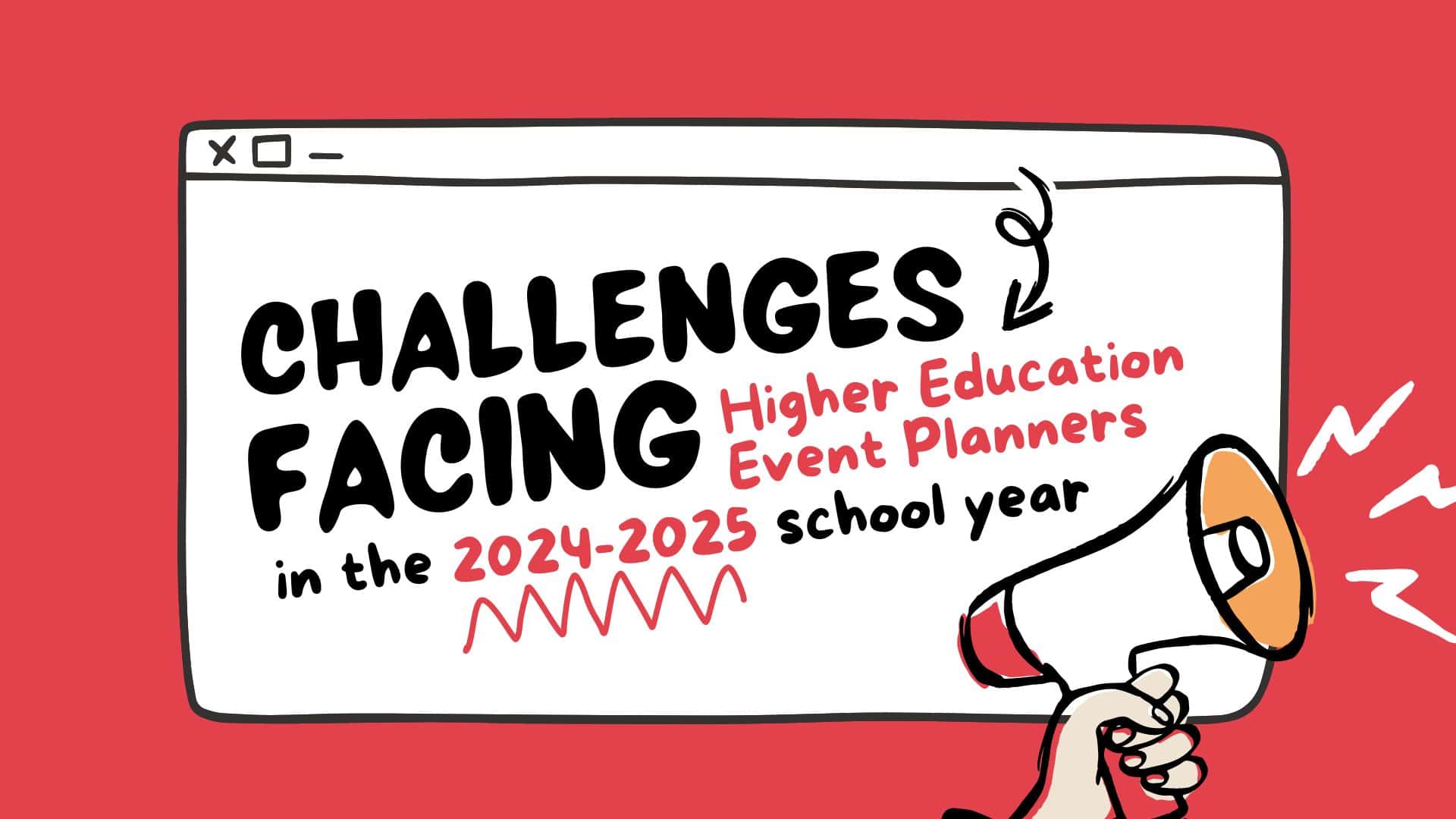Back to all posts
August 15, 2024

This past school year was one of the most volatile for higher education ever - quite a statement considering that we are only a few years removed from the height of the COVID-19 pandemic. However, political and cultural trends around the world particularly around questions of free speech, campus protest, and the cost of higher education led to a turbulent school year on campuses.
While summer has brought the usual calmer environments educators expect when students return home, as the calendar turns to August and a new school year looms, the list of challenges facing professionals in charge of managing campus events is as large as it ever has been. Here are just a few of the challenges facing anyone in charge of managing events on campus, from those working in the president's office to professors and staff managing extracurricular meetings and gatherings.
Campus environments have been experiencing turbulence for years, since the chaotic trifecta of the George Floyd protests, COVID-19 pandemic, and 2020 presidential election. While a period of relative calm was established after these events faded slightly into the past, ongoing debates around free speech issues that are central to the operations of higher education institutions kept a slow boil underneath the surface of many campuses. Then came the October 7th attacks and the Israel-Gaza war.
With students already returning to campuses this month, the higher education community anxiously awaits to see if the volatile environment of spring 2024 returns. In addition to the myriad logistical and moral issues that a resurgence in campus protests will raise, for planners looking to navigate the already challenging task of planning education events for large campus communities, a few major questions stand out:
The answers to these questions may be an ongoing, multi-year endeavor. The scope to which they will impact schools and the events that drive their operations will likely be determined in real-time, as campuses open up for the fall semester. And it's important to remember that there's a new factor impacting campus environments this fall - the 2024 presidential election.
Despite the turmoil of the 2023-24 school year, higher education institutions were fortunate to continue to receive significant donations. The most recent Voluntary Support of Education survey by the Council for Advancement and Support of Education (or CASE) found that higher education institutions took in over $58 billion in the 2023 fiscal year, second highest ever behind 2022.
While many higher education institutions are publicly funded, receiving a majority of money through state budgeting processes, people outside the space often don't realize the vast extent to which private donations support various infrastructure and program investments that are essential to operating a college. While 2023 offers some hope for continued positive news in these efforts, fundraising leads at schools also are wary because of trends in the greater political climate.
As the number of people who question the value of a college degree continues to rise, and the price tag of attending schools becomes more daunting for many middle and working-class American families, fundraising event leads continue to worry about a moment where major donors begin to hesitate to give at these record levels.
To be proactive in the face of potential questions from major donors or event attendees about sustaining their level of giving, event planners should consider:
Especially in the case of major public universities, managing and tracking all of the individual events that take place throughout the school year on a campus can be borderline impossible. Student organizations, class outings, athletic and extracurricular competitions, Greek life functions, fundraisers - at the biggest schools, these events can take place in the hundreds each week. In the past, most schools delegated responsibilities to different departments to oversee certain subsections of events, removing the burden of oversight from campus administration with some exceptions.
However, the challenges we've noted argue for smart administrations to begin planning for a more comprehensive event oversight process to prevent potentially chaotic or controversial events from catching the community by surprise. This doesn't necessarily mean requiring approval or review of every single event on a campus - far from it. But the ability to track events via a centralized dashboard, or utilize a single software platform with all campus events hosted within, can make exporting event and attendee data for oversight purposes streamlined in a way that was impossible just a few years ago.
A few things to remember when implementing a system like this:
About the Author
Adam Hausman co-founded RSVPify in 2013 and has been passionate about event tech and ticketing software ever since. Also founder of Greenlight Growth Marketing, he holds degrees from Indiana University (BA English/Psychology 2008) and the University of Illinois-Chicago (M.Ed. Secondary Education 2012). He lives in Maine with his wife, 2 kids, and 2 annoying cats.
Get the latest product updates, event planning tips, and industry insights — straight to your inbox.
You can unsubscribe at any time. Your email will only be used to send RSVPify updates and will never be shared.
